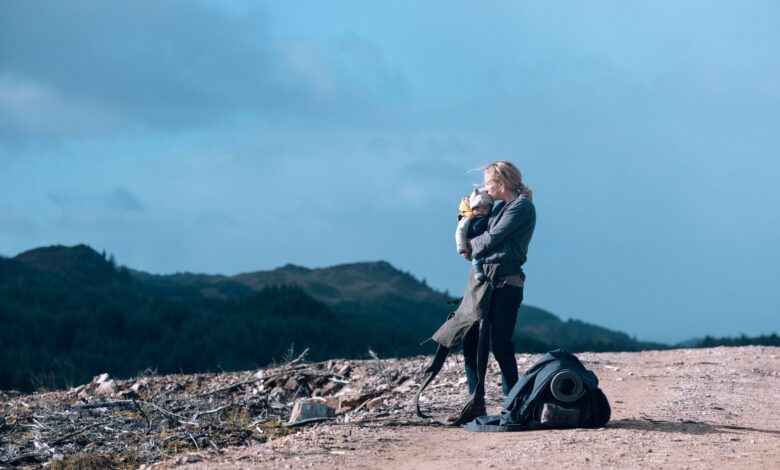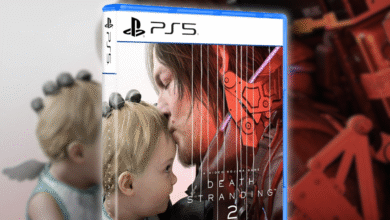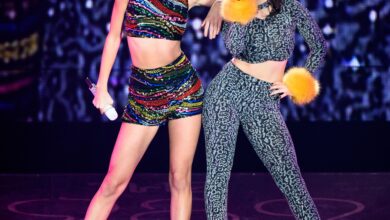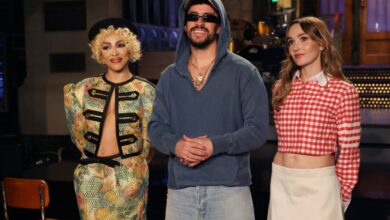Why Having Children Made Me More, Not Less, Hopeful That We Can Fight the Climate Crisis

When I had my first child at the age of 25, I was, like many new parents, overwhelmed by the strength of my love for him, and by his vulnerability. I would push his buggy down the polluted local high street, unable to quite process the fragility of his tiny head poking above the blankets, surrounded by dust and fumes from passing cars.
I had grown up with a sense of doom about the environment, and in my 20s this only deepened, the anxiety broadening to include my children and their future. I remember an apocalyptic climate-themed front page of the newspaper beside the hospital bed where I lay with my second baby shortly after her birth. There was guilt, in bringing children into this world, alongside the inevitable fears, both large and small. When you have a child you see their death over and over, in the accidents that could happen, all the ways you could fail them. And in the climate crisis, this existential fear—and remorse—was rendered so much larger, planetary in scale. By the time I was writing my first novel in 2016, it seemed inevitable that the book, set in the near future as a woman gives birth to her first child, would take place in a world of climate disaster and upheaval: an imagined time when London is completely under water.
But as I wrote I found, in amongst despair and destruction, chaos and loss, there remained a thread of hope. This came from the protagonist’s baby, of course—from his first smiles, his crawling, his discovery of first foods amongst scarcity—but also from all the other loves in the book, for family and friends, even for strangers, bonds formed in extremity. In my own life, my children would constantly inspire me with their passionate delight in the world, but I was also struck by the relationships I formed with other women, and by the kindness of people who didn’t even know me. Once, when my toddler was having a tantrum, and my newborn baby was screaming in her buggy, a woman in a park knelt down beside me as I tried to pick my son off the ground. “You are not alone,” she said. I didn’t see her again, but I never forgot that moment.
Now, nearly nine years later, the book I wrote—The End We Start From—has become a film with the same name, adapted by Alice Birch, directed by Mahalia Belo, and starring Jodie Comer. Alongside my joy in the film itself, in how moving it is to see my book come to life in such a beautiful way, there is a sadness in how it has become all the more relevant to our climate-threatened world. As the narrator of my novel states: “This is what you don’t want, we realize. What no one ever wanted: for the news to be relevant.”
It does feel, in many ways, that there are now even fewer reasons to be hopeful, with the film’s setting now seeming less a dystopian future and more a contemporary story about the times we live in, with the UK once again ravaged by flooding, the climate emergency becoming more urgent while political solutions are inadequate and compromised by a profit-driven economy. I have often felt that the time since my children were born can only be characterised by an increasing sense of despair in relation to the climate, cumulative disappointments that seem to point solely to catastrophe.
But as I watched the film, I found myself drawn again to the love it depicts, how this love emerges from the flood waters, damaged as the city is, but still alive, still forceful. One of the most hopeful images in the film is of two mothers supporting and protecting each other, stronger through their friendship, singing as they walk through a sodden landscape. I was struck again by the thought that hope is not the same as optimism; it isn’t based on facts, or predictions. It comes from the refusal to give up, just as the unnamed heroine of the book and film can never give up, must always fight to survive, for herself, her son, for all those she loves.
It doesn’t seem to me that this is a passive kind of hope, a wishing for the best while sitting back and doing nothing. It’s a hope based on love itself, of what love drives us to. Whether for our children, our parents, our friends, love compels us to want a better future. And, crucially, this future relies on our care extending beyond those we are related to: it needs to go beyond self-interest, beyond even our personal ties—like that stranger who showed me kindness in the park—to a habitable, more equal world for everyone. I’ve long held the belief that hope can broaden our outlook. Though my hope may, in one sense, have started in my child, in his freshness in the world as I pushed his buggy along the street, it has gained strength in its expansion, in a wider view that encompasses a better, fairer world for all.
With my children now both at secondary school, I see how motherhood—and the hope it inspires—has propelled me to take action; to help create that better world. Now, they have their own fears and speculations; there are difficult questions about how we should live, and what their future will be like. As parents, all you want to do is reassure, and sometimes that doesn’t feel possible. But hope encourages me to keep going, to push beyond the limits of my own home, my own family, and—just as books and films do—to broaden the horizons of my life. When I wrote The End We Start From—and when I watched the film—this felt like something the story can offer, now: some small, steadfast image of a new beginning, even in the midst of disaster.
‘The End We Start From’ by Megan Hunter is published by Picador. The film is out now.


